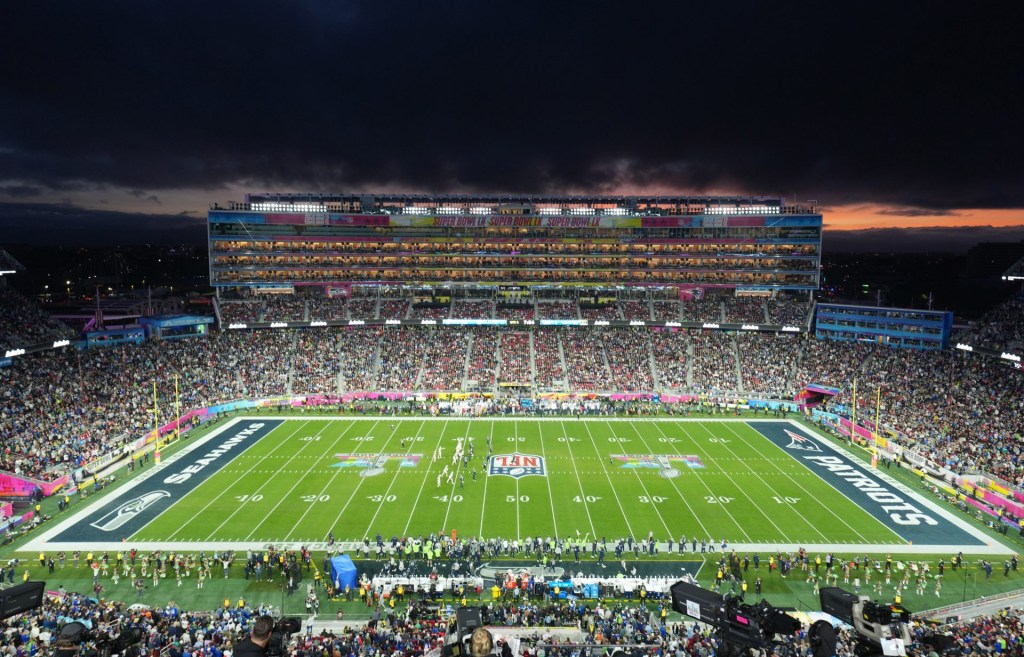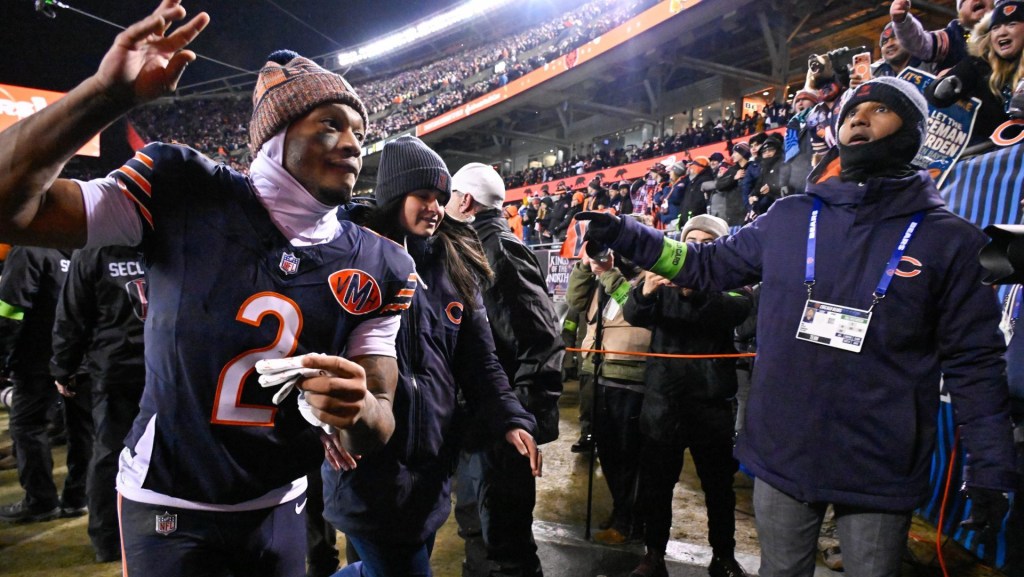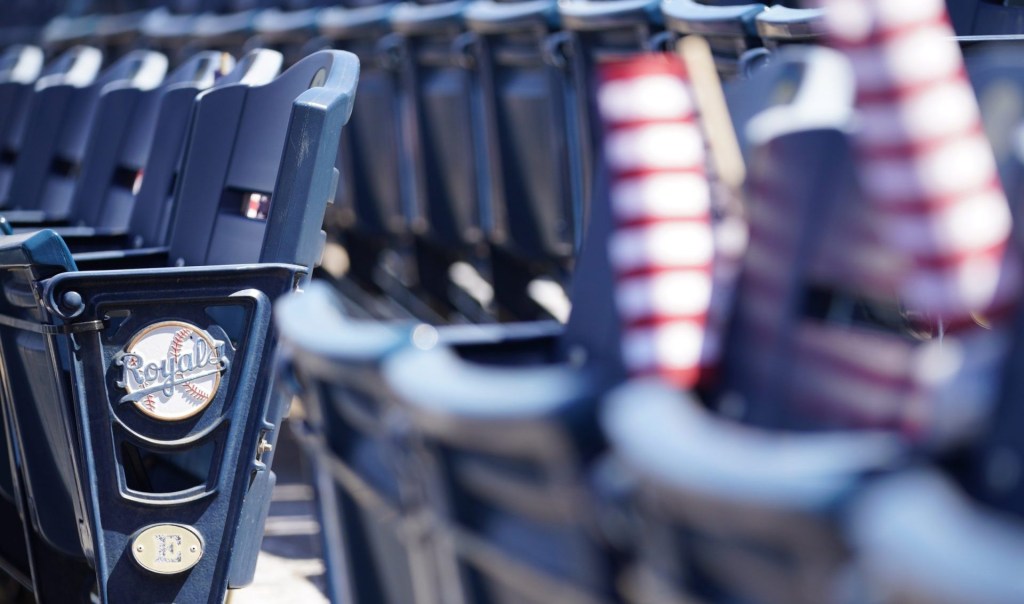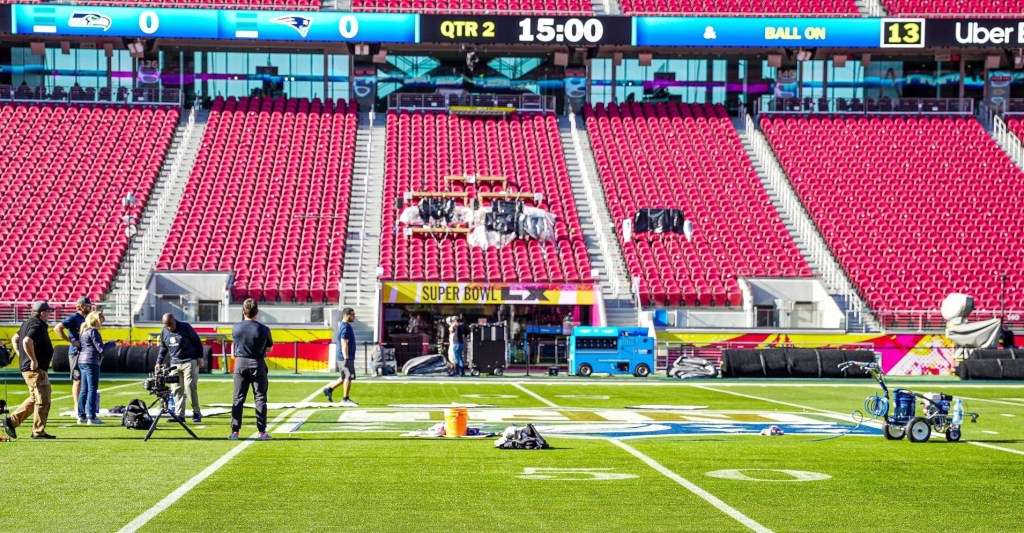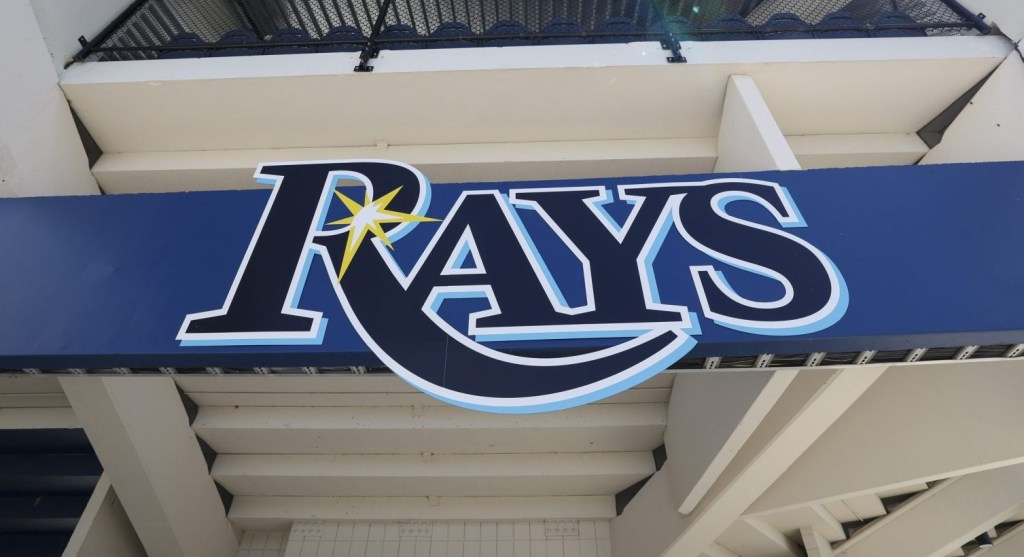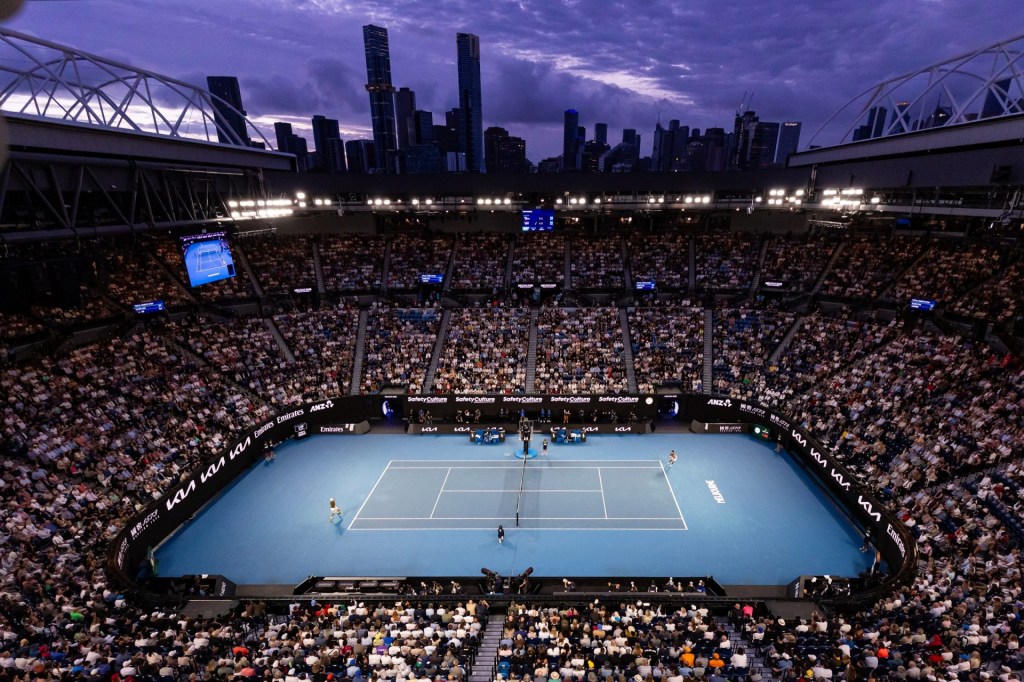The NFL’s hope for full stadiums this season is under a growing threat from the delta variant of the coronavirus.
On Thursday, New Orleans Mayor LaToya Cantrell decreed fans must show proof of a COVID-19 vaccination, or negative test result within the prior 72 hours, to gain admission to Saints games this season at the Caesars Superdome.
Cantrell pointed to a surge in COVID-19 cases and hospitalizations across the city and state. The Superdome will remain at its full 73,000-seat capacity for football, however.
“We really have no choice. The situation is dire,” Cantrell said.
That will make the Saints the first of the NFL’s 32 clubs to require their ticket-holders to show proof of vaccination, or negative test results, before attending games.
The citywide mandate will go into effect Aug. 23, the same day the Saints are scheduled to host the Jacksonville Jaguars in a preseason game.
“Our team has been blessed with the greatest home field advantage in sports because we have the most committed, resilient and passionate fans in the world,” the Saints said in a statement. “We understand some will be frustrated, as are we, that we find ourselves in this position.”
The team is teaming with Ochsner Health to offer vaccinations outside the Superdome on gamedays.
The highly infectious delta variant now makes up more than 80% of new COVID-19 cases nationwide. The threat is spurring some teams to mandate face masks in all or some part of their stadiums.
The Saints and Las Vegas Raiders will require spectators to wear masks at all times inside their domed stadiums (except when eating and drinking).
As the Raiders open Allegiant Stadium with a preseason game against the Seattle Seahawks on Saturday, Nevada state agents will be on hand to make sure the club enforces mask wearing.
The stakes are high for the country’s richest, most popular sports league.
The NFL lost $4 billion last year as the pandemic decimated ticket sales and forced teams to play in virtually empty stadiums.
More than 17 million spectators are projected to attend live NFL games this season, but clubs remain at the mercy of regulations ordered by mayors and governors when it comes to COVID-19 protocols. As well as guidelines from the national Centers for Disease Control and Prevention.
NFL franchises may want full stadiums in 2021, but their health and safety protocols are subject to change — especially if infections spike in their city or state. The news about the Saints making their fans show vaccination cards sent alarm bells through various team offices on Thursday.
“Even if we don’t have mask or vaccination mandates right now, that could change in a heartbeat,” warned one worried team executive who declined to be named. “It all depends on this delta variant — and how our local and state authorities react to it.”
Then there’s the controversy over masking during Year 2 of a global pandemic. Forcing fans to wear masks could alienate some season ticket holders who want to get back to normal. Stadium personnel will be hard-pressed to enforce those rules.
While some fans might be concerned about contracting the delta variant, others might figure attending a live game is not worth the hassle — and stay home to watch games on TV or with their streaming devices. Like Cole Beasley of the Buffalo Bills, some fans might refuse to get vaccinated. Then what?
The question of which NFL teams will force fans to mask up will likely depend on what type of facility they play in, the rate of infections in their home city and state, and how strict authorities are about health and safety protocols.
Due to fear of igniting a “super-spreader” event, teams playing indoors are more likely to require face coverings or vaccination proof than those playing outdoors.
The result? Not all 32 teams have the same list of mandates and stadium guidelines, and it can be confusing. Details:
- Eleven NFL clubs play in domes or indoor/outdoor stadiums with retractable roofs or large opening doors: the Saints, Raiders, Dallas Cowboys, Atlanta Falcons, Minnesota Vikings, Indianapolis Colts, Detroit Lions; Houston Texans; Arizona Cardinals, and Los Angeles Rams and Chargers.
- As of Friday, only the Saints and Raiders were requiring fans to wear masks at all times. The Raiders are not requiring proof of vaccination, however.
The Saints will also require fans to pass a temperature check. Guests with a temperature of 100.4 degrees Fahrenheit or higher will be directed to a “cool-down” area, where they’ll be administered a second test. If their temperature is still 100.4 or higher, they can’t attend the game.
Saints and Superdome employees are also banned from “physically interacting” with spectators. That means no high-fives or handshakes.
The Colts, Falcons, and Cardinals are “recommending” face masks inside Lucas Oil Stadium, Mercedes-Benz Stadium, and State Farm Stadium, respectively. But they’re not mandating them.
The Cowboys and Lions, meanwhile, are encouraging “non-vaccinated” fans to wear face masks — but are not yet requiring them to do so at AT&T Stadium and Ford Field.
Even some outdoor stadiums will require fans to mask up — in parts of the stadium only. This week, the Baltimore Ravens announced all fans will be required to don masks within indoor areas of M&T Bank Stadium, such as concourses, corridors, retail stores, restaurants, and restrooms.
The Rams and Chargers’ SoFi Stadium in Los Angeles is a unique case. The massive $5 billion facility boasts a roof canopy that covers the playing field.
But SoFi is still classified as an outdoor facility since air flows in and out of the canopy. The Rams say vaccinated individuals can go maskless. But similar to the Ravens, they must mask up in indoor settings.
There’s no mystery why the NFL wants a return to full stadiums. The pandemic drove the league’s annual revenue down to $12 billion last year from $16 billion in 2019. With stadiums mostly empty, attendance plummeted to 1.2 million from 17 million.
This was supposed to be a year where the NFL recouped the billions in losses suffered during the pandemic, but teams are now worried the rising rate of infections nationwide will force them to limit attendance again.
That could cost franchises billions in lost ticket, parking, concession and merchandising revenue.
“We are planning on full stadiums across the league this year but will remain flexible and adaptable as necessary,” NFL spokesman Brian McCarthy said in a statement. “Like last season, there may be different fan experiences depending on the current situation in the local markets working in conjunction with public health authorities.”
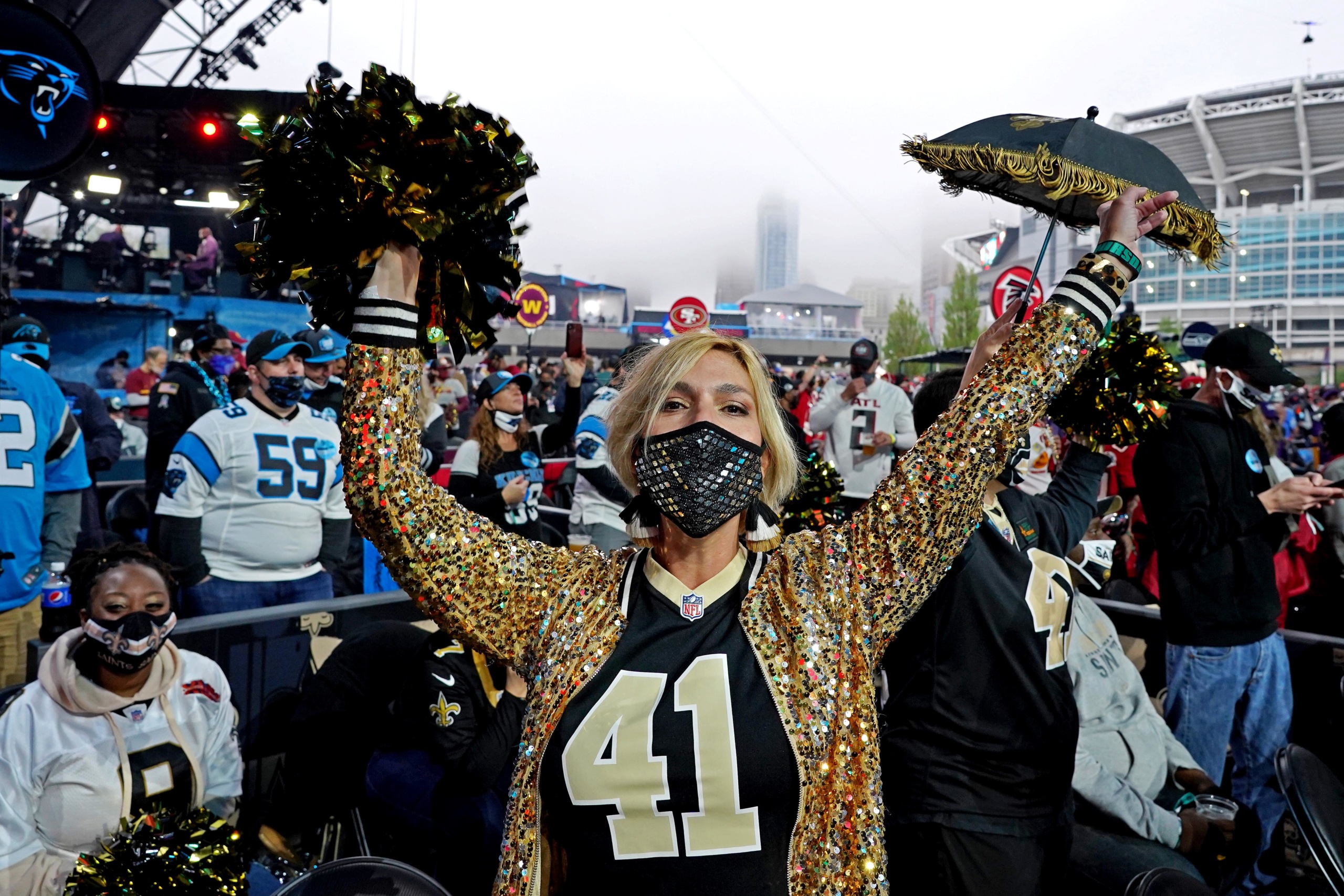
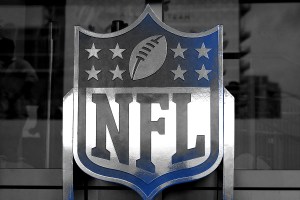
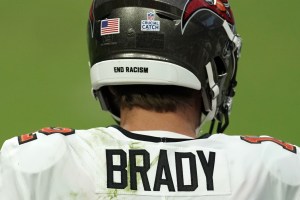
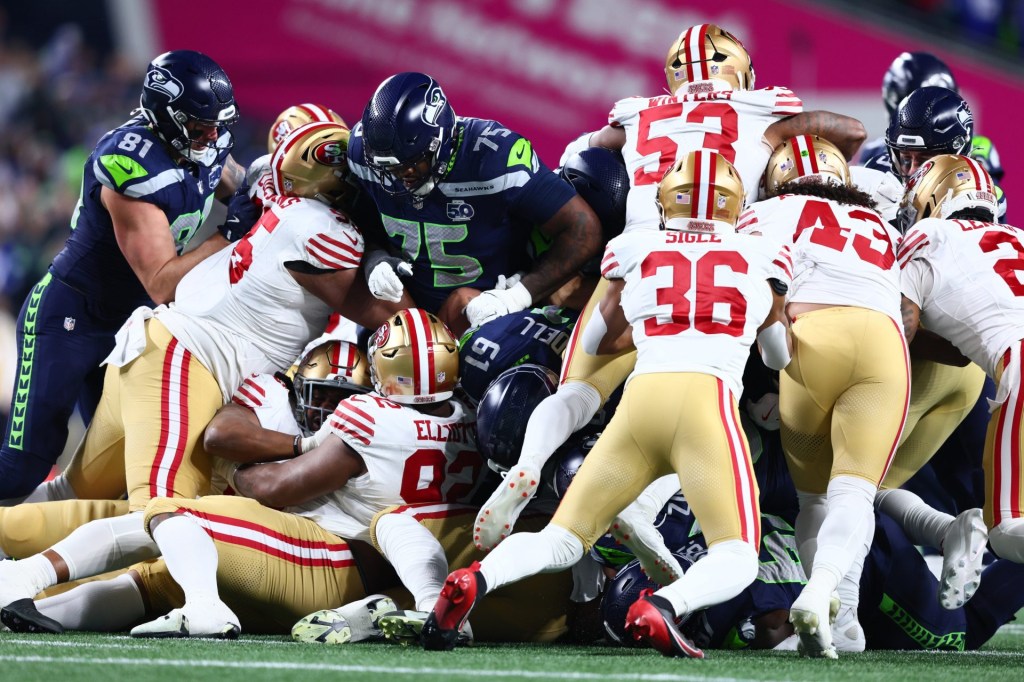
![[Subscription Customers Only] Jul 13, 2025; East Rutherford, New Jersey, USA; Chelsea FC midfielder Cole Palmer (10) celebrates winning the final of the 2025 FIFA Club World Cup at MetLife Stadium](https://frontofficesports.com/wp-content/uploads/2026/02/USATSI_26636703-scaled-e1770932227605.jpg?quality=100&w=1024)

